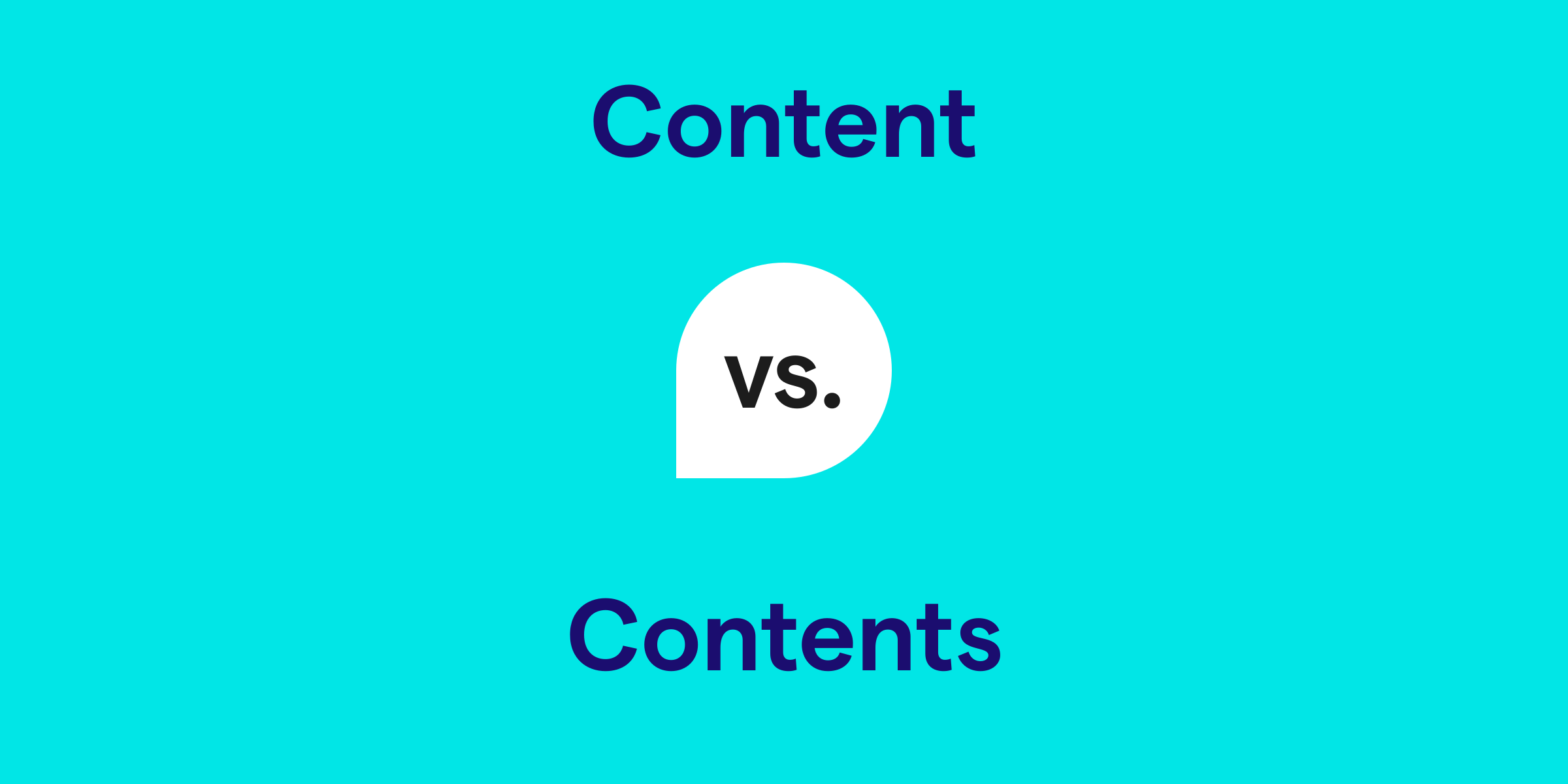Content vs. Contents: What's the Difference?
The words content and contents are often used interchangeably, but they have distinct differences in usage. Content refers to the ideas or subject matter contained within something, such as a book, speech, or work of art. It's commonly used in a singular form and can be thought of as a collective noun. On the other hand, contents refer to the individual items or components contained within a physical container, such as a box or room, and is typically used in plural form.

How do you use the word content in a sentence?
The word content is most often employed when discussing the substance or informational component of a medium. It conveys a sense of what is being expressed or communicated as a whole. This term is versatile, with relevance across various industries, from technology to creative arts.
Examples of content in a sentence
- The content of her speech was both informative and inspiring.
- He specializes in creating digital content for social media platforms.
- The course content will cover a variety of subjects, from history to science.
How do you use the word contents in a sentence?
Contents is utilized when specifying the different elements or items inside a particular volume or space. It's the appropriate choice when listing or describing these items individually rather than as a conceptual whole.
Examples of contents in a sentence
- She carefully packed the contents of her suitcase before departing.
- The insurance policy covers both the house and its contents against damage.
- The table of contents lists all the chapters and their starting pages.
Content and contents definition, parts of speech, and pronunciation
Content definition:
As a noun, content refers to the substantive information or material that is being communicated in a medium, such as a book, website, or audio recording.
Content parts of speech:
Content pronunciation:
Content is pronounced as /ˈkɒntɛnt/ when used as a noun, and /kənˈtɛnt/ when used as an adjective, describing a state of satisfaction.
Contents definition:
Contents, always used in the plural form, signifies the individual items or set of items contained within a larger entity or space.
Contents parts of speech:
Contents pronunciation:
Contents is pronounced as /ˈkɒntɛnts/ and refers to the plural noun indicating a collective set of items.
As a noun, content refers to the substantive information or material that is being communicated in a medium, such as a book, website, or audio recording.
Content parts of speech:
- As a noun: The content of this book is quite compelling.
- As an adjective: He seemed content with the results of his work.
Content pronunciation:
Content is pronounced as /ˈkɒntɛnt/ when used as a noun, and /kənˈtɛnt/ when used as an adjective, describing a state of satisfaction.
Contents definition:
Contents, always used in the plural form, signifies the individual items or set of items contained within a larger entity or space.
Contents parts of speech:
- As a noun: The safe’s contents were more valuable than we anticipated.
- Used with a possessive pronoun: Her diary’s contents are strictly private.
Contents pronunciation:
Contents is pronounced as /ˈkɒntɛnts/ and refers to the plural noun indicating a collective set of items.
Content vs. Contents in a nutshell
Essentially, content is used to describe a collection of information or subject matter most often related to media or art, and it is treated as a singular concept. In contrast, contents are used when referring to discrete items inside a container or compilation, highlighting the individual components. Understanding the context and nuance of these terms will ensure their precise and accurate usage.
Get AI Writing Assistance Wherever You Type
Make sure your vocabulary is on point and every punctuation mark is in the right place, no matter where you’re working. Grammarly works across more than 1 million websites and apps so you can improve your writing without copying, pasting, or breaking focus.

More Commonly Confused Words
Interest piqued? Pore (not pour) over other commonly confused words to help your writing reach peak (not peek) performance.